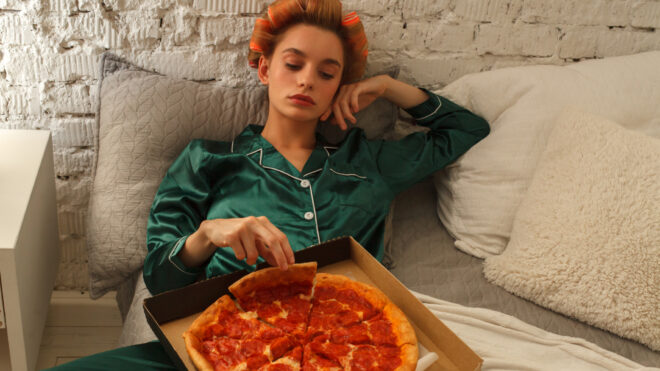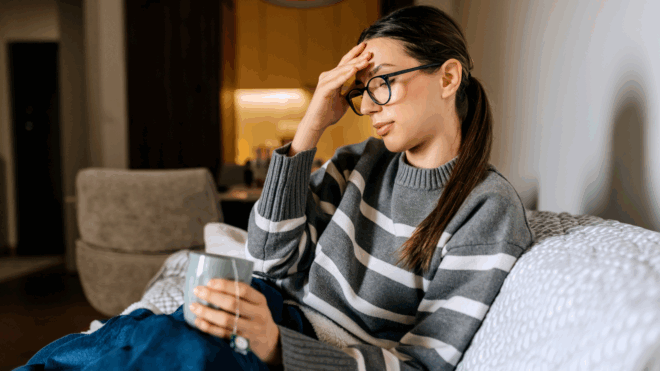The body-positivity movement is in a bit of a divide. While body positivity is technically for all bodies, the current representation is drastically veering away from its mission. When it first began, really stemming from the "fat acceptance" movement, the mission wasn't just to push non-mainstreamed bodies into the spotlight, it was to enact and inspire real protective policies for fat, disabled, transgender, and other bodies to hinder discrimination.
And while the debated differences between fat acceptance and body positivity are as important as they are controversial, there is another touchy divide worth addressing: the gendered one.
Why aren't males as prominently included in body positivity?
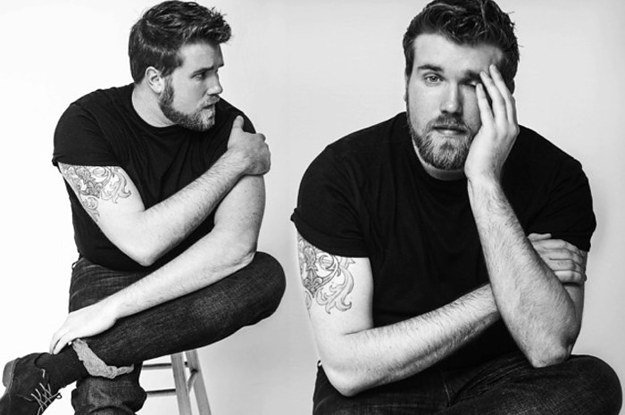
Sure there was a brief effort to drum up awareness when Zach Miko joined the same agency as Ashley Graham, but the flames of that fire were quickly snuffed out, leaving many men and women perplexed.
The immediate, and admittedly understandable, reaction to this is the observation that men are not held to as high of impossible beauty standards.
But what if that isn't the case, and toxic masculinity reinforced by media stereotypes is actually manipulating our perceptions of men and their relationships with their bodies?
Andrew Walen, the president of the National Association for Males with Eating Disorders (who is also the CEO and founder of the Body Image Therapy Center in Maryland and DC), believes so.
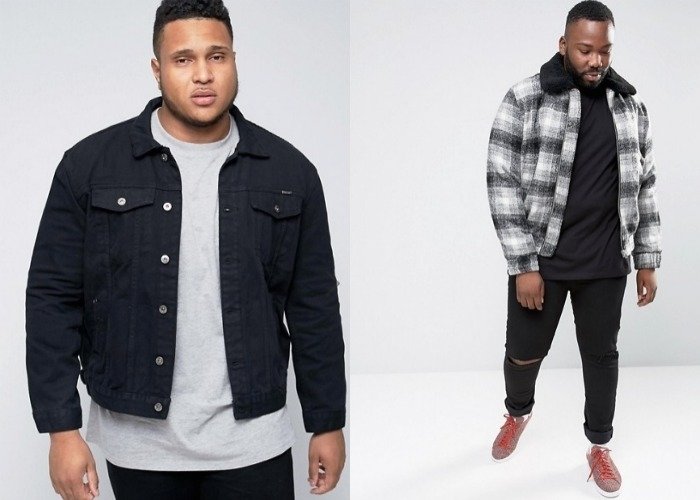
"We’re seeing a significant rise in body loathing in men," he said. "For many men who have body issues, it turns into substance abuse and into self loathing. … Men are not given permission to express [them]selves. We're taught that if we are to react at all, we are to react with anger."
While plus-size women are often portrayed as undesirable, larger men are given a "pass" — but it comes at a dangerous price.
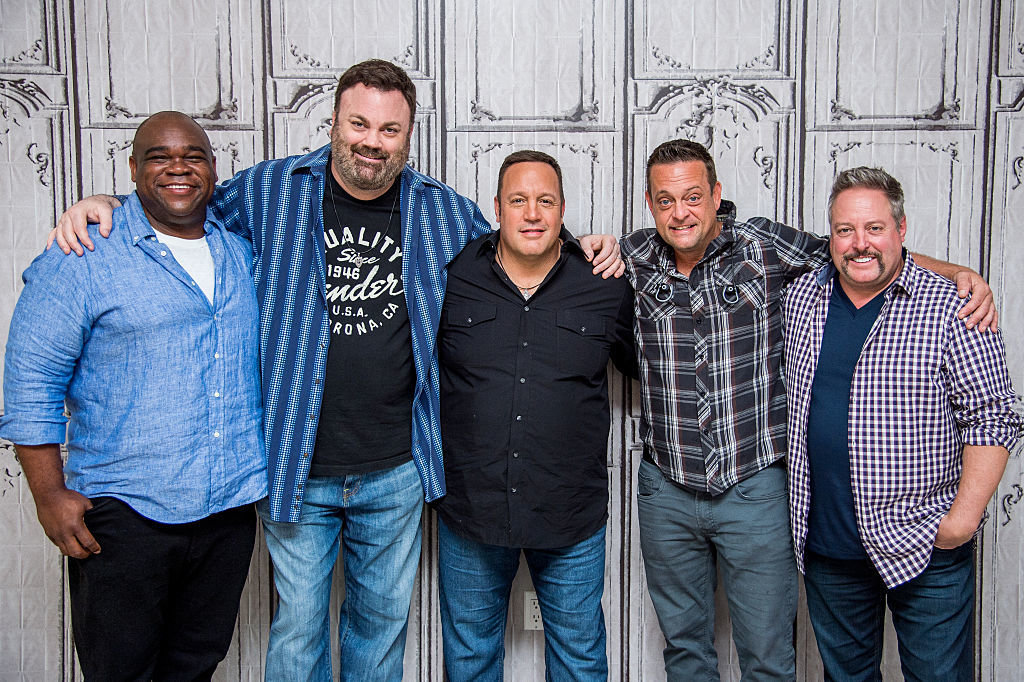
"With the 'dad-bod' phenomenon, it's not like celebs were showing their bodies with pride — it was 'haha-isn’t-that-so funny-he-is-comfy-with-his-body,' and that's damaging," explained Walen. "Echoed in images of celebrities like Kevin James, there isn’t a single larger man who isn’t a buffoon and the buffoonery is celebrated."
And many men feel the same way.
"What bothers me is the media portrays an image that honestly is not healthy and in most cases not achievable," said Don Fowler, 54. "Additionally, I become very frustrated with labeling 'non-fitness magazine bodies' as dad bods. Once again, the media creates labels and I don’t believe that’s healthy or appropriate."
Others feel the pressure from all sides.
"I think more so in real life than in media," said Matt Goodmark, 31. "In media, I'll sometimes feel inadequate when there's like a super thin attractive guy in a movie or TV show, but I more feel it when I'm in a store and they don't carry anything above XL, and most of that stuff in nicer stores I think of as closer to large in fit and size."
Another millennial male, who Identifies as gay and wished to remain anonymous, said shaming is particularly prevalent in the gay community, and it starts young:
"I definitely have been fat shamed, but it was by teammates and coaches mainly, so it was 'OK' because it would help me swim faster. It has left its marks and honestly affects my sex life."
What's worse, women aren't even seen as allies in the media or otherwise.
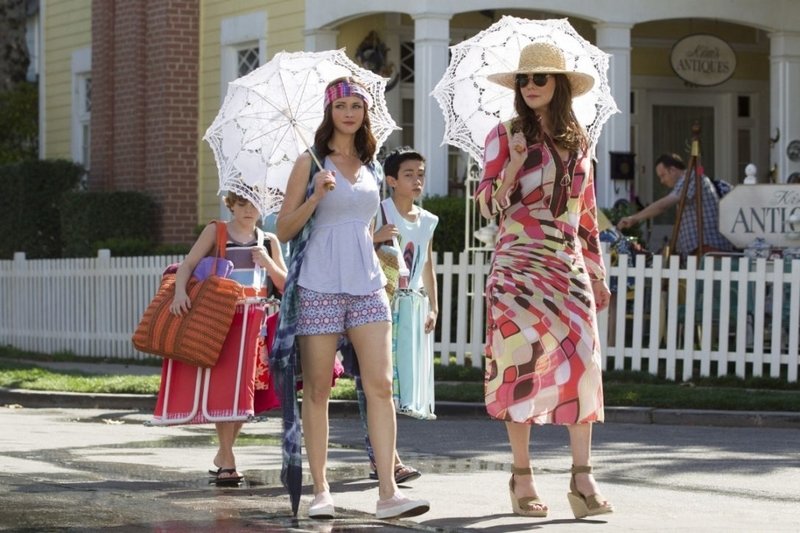
Just take a look at the recent "Gilmore Girls" revival. Both Rory and Lorelai go on a solid five-minute rant entirely centered around the fat-shaming of men — namely, a character they call "Back Fat Pat" — at the pool.
"My sense of it is that women are championing women and men are not championing anybody," said Walen. "I think the body-positive message has to be more inclusive of males, females, and non-gender-specific individuals."
That's not to say there aren't dudes out there repping for larger men.
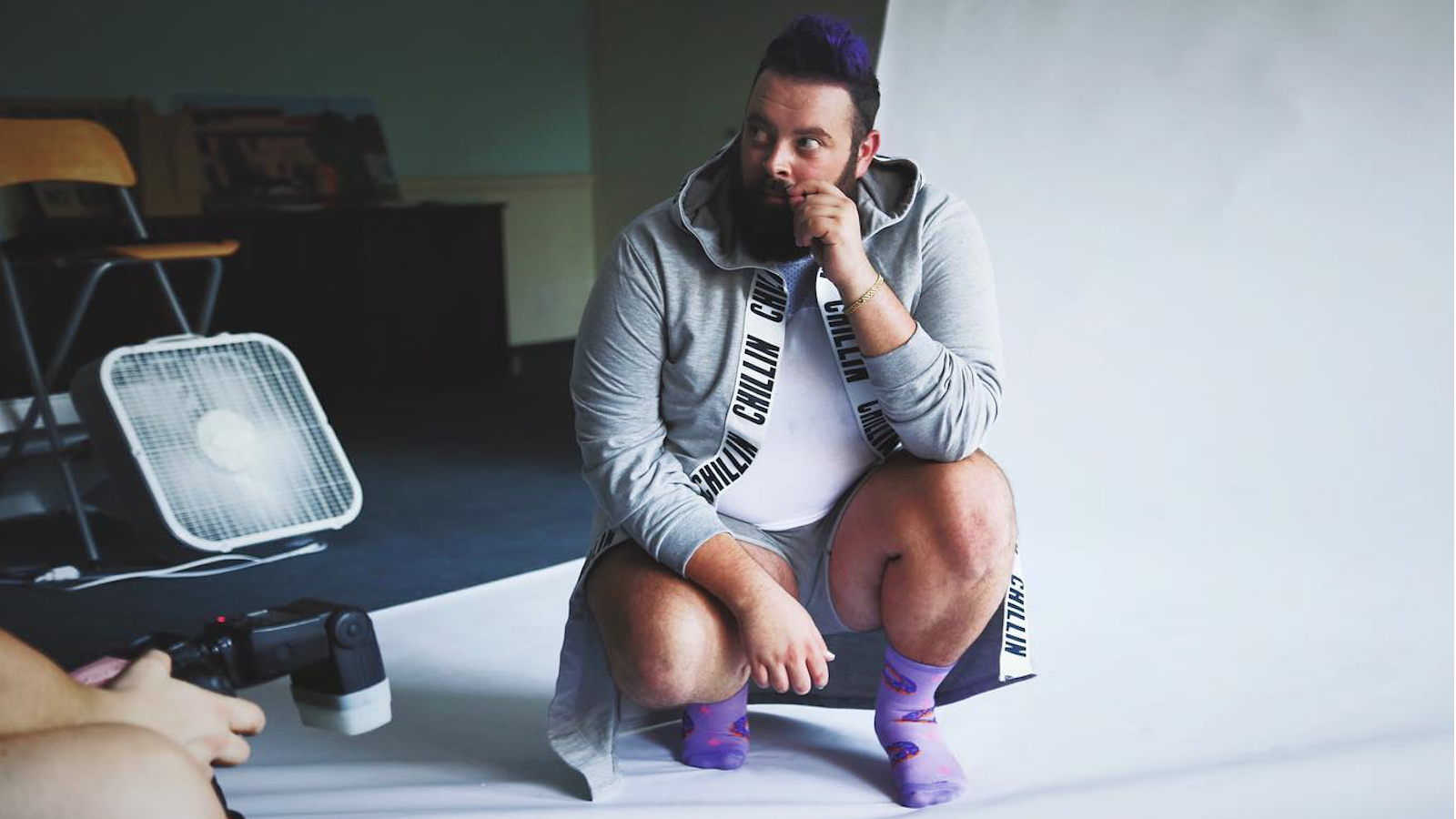
Just take body positivity activist and model Troy Solomon (aka A Bear Named Troy) for example. But even though he is an avid supporter of the BoPo movement as a whole, he sees an unfair skew when it comes to body representation in the media:
"Unfortunately, there has been little to no well-rounded representation of the plus-size man within the media and it's because the bigger guy always has to be the funny guy — he can never seem to be the object of attraction for another person or the hero to look up to. For years and years the media has decided what is and isn’t considered attractive. We’ve seen it in movies… it's the girl’s chubby best friend who is deeply in love with her, but she only sees him as a friend, yet pines after the all-American, football-playing jock. Or on TV where the leading man MIGHT be plus-size, but he has to be funny and the punchline of his jokes often revolve around his size. There are so many layers to peel back with this mentality and it would take a book to explain it all, but a lot of it comes from the media deciding that all the qualities a desirable man should have are in one way or another a direct result of his physical strength and attributes."
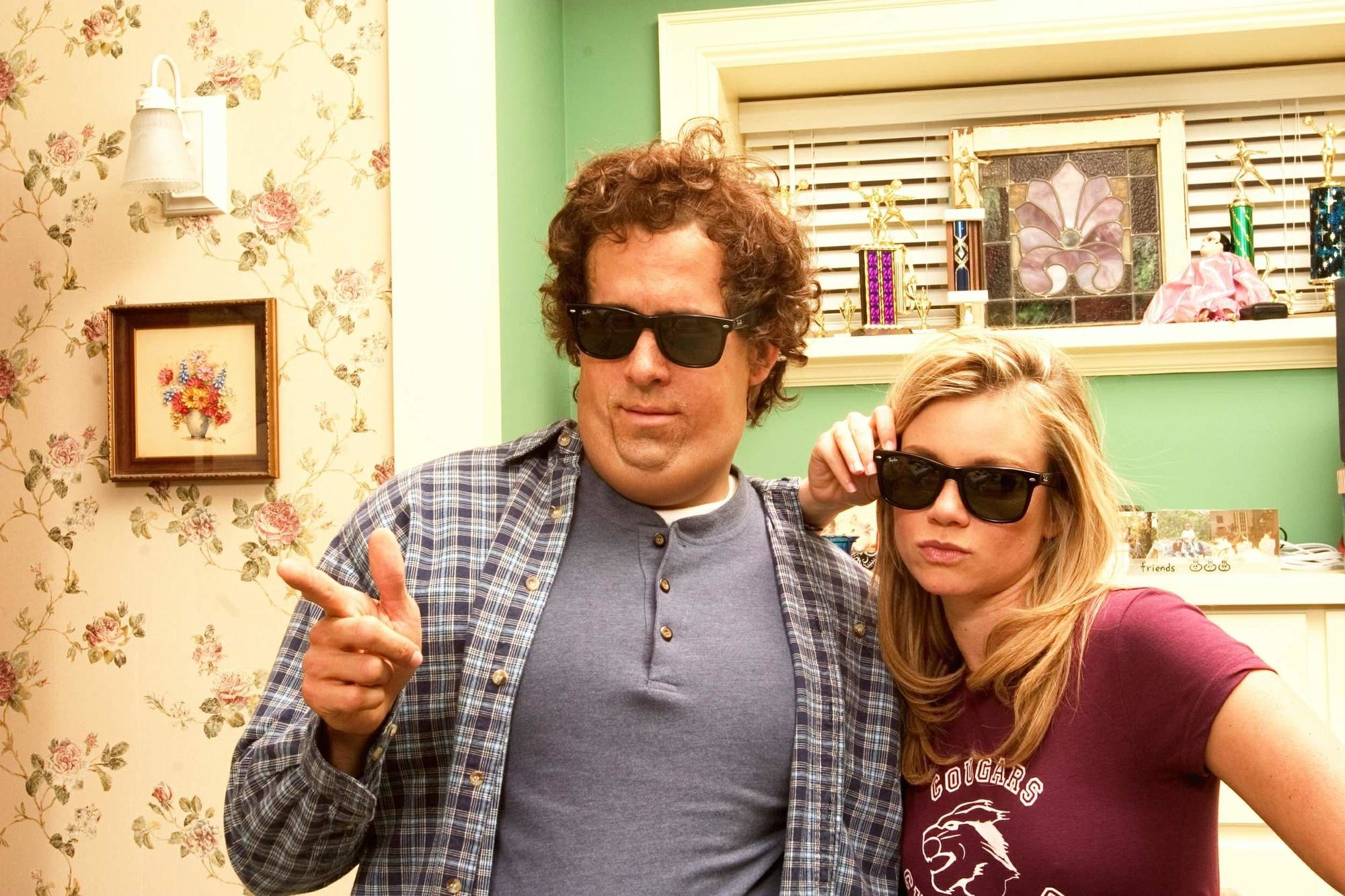
The movie "Just Friends" centers around a formerly overweight guy who was friend-zoned by his high-school crush — until he loses weight.
The solution, of course, is a simple, yet highly over-complicated one: REPRESENTATION.
Currently, 67% of women are considered "plus-size," and the fashion and media industries have only just started to scratch the surface of that problem. And when it comes to men, the conversation is barely even casual, due to the general misconception that men simply don't care about their looks the way women do. And this impacts far more than just the fashion and entertainment industries:
"Less than 7% of research on body disorders and eating disorders exists for men. Feminism has spent a lot of time championing for other women, which is great, but no one is speaking out for men, so men are about 20 years behind," says Walen.
And furthermore, when that representation happens, it needs to be done right.
"Why isn’t there ever a movie with a plus-size leading lady or man with her/his issues revolving around a relationship, or family problems, or whatever it is, and never ONCE is weight brought up as an issue?" asked Solomon. "I’m tired of the media deciding what my problems are and deciding who should represent me, as I’m sure A LOT of people, both plus-size and non-plus-size, are. We are strong, we have a voice, we ARE the leading men and women, and the media needs to recognize that."

